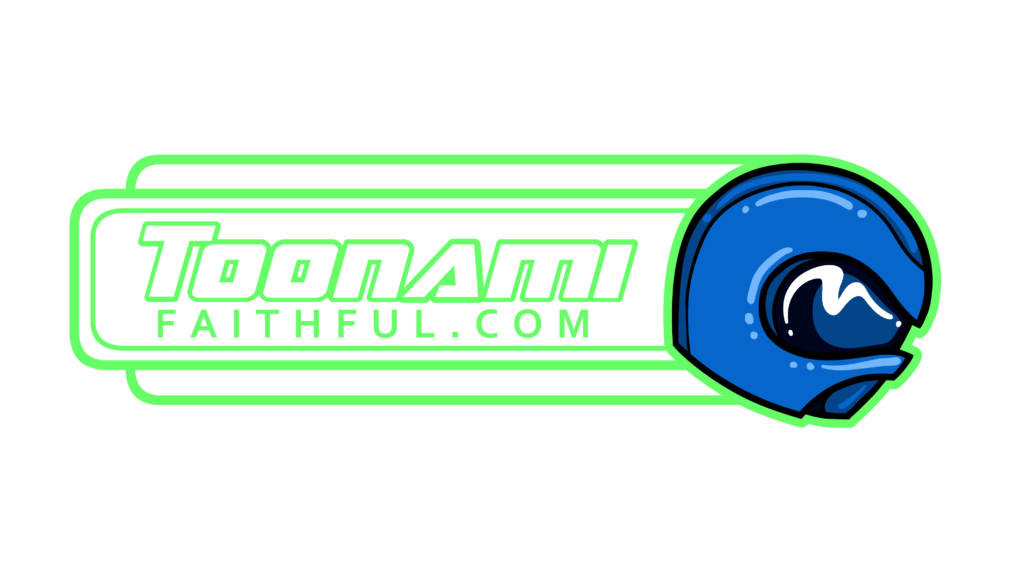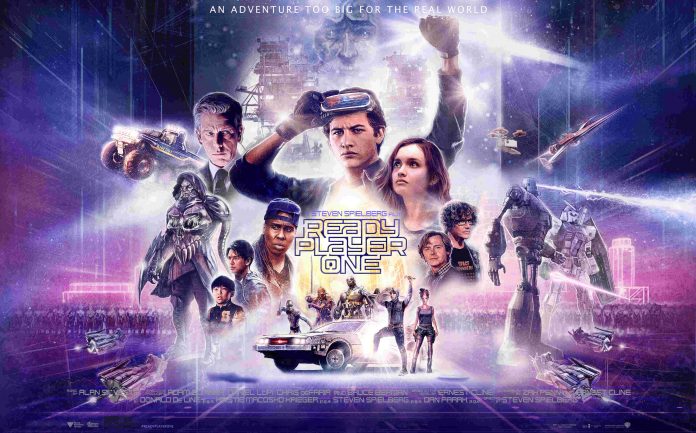This is now my third time seeing this film, and I continue to get more and more from it with every viewing.
A “nostalgia trip”—as clichéd a term as that is to use—couldn’t be closer, and yet further, from the truth; yes, this film brings me back to my early days of movie-watching, of which Spielberg was a seminal, unshakable part of the center, but even he, himself, wished to forego a lot of his own references (which original author of the novel, Ernest Cline, stated were central to the story and a huge inspiration) to make something original, creatively-driven, instead of a self-back-patting homage to himself.
I can admire that. In “Game-Changer”, a special feature included on the Blu-Ray disc, we see just how much Spielberg worked and melded the source material to create something completely new. The characters, though taken from the book and adapted almost to truth, were original designs from his own costuming and SFX department.
They were unique creations of Spielberg’s best, brightest, and trusted, and I couldn’t be happier with the result.
Development of those characters over the course of the story—at least, the primaries; Parzival, Art3mis, Aech, Sorrento, and mastermind Halliday, himself—shows great artistic hand-in-hand with the author, whom was on-set every day of shooting. In that, the same creative teamwork was had as with the legendary Harry Potter franchise, where all production decisions were finally ran by J.K. Rowling. The whole cast (whose filmographies I’ll save for space) is great. From the nigh-perfect casting of Tye Sheridan as Parzival—and whose Funko vinyl figure I own—to Ben Mendelsohn’s charismatic and sympathetic antagonist character of Sorrento, I see a lot of potential here for a sequel! Olivia Cooke’s Art3mis (whom I still think they should’ve made handicapped, for effect…) is a great change-up from what we’re used to with female leads; I also ordered her Funko figure, at the time of writing. The next film—if there is one—would be great to see from her point-of-view. T.J. Miller would be great to see return (thoughts on the man, himself, aside), if only to fulfill largely-untapped potential from this film as a great antagonist character, and more of Aech (Lena Waithe) is a must; her dynamic with Parzival as a “buddy” and also as a strongly-written character, in herself, is just begging to be explored on the big screen. I have a retroactive appreciation for Hannah John-Kamen, now, after Ant-Man and the Wasp, and would like to see her return, as well—perhaps even in Sorrento’s stead. I have some theories about Mark Rylance’s Halliday role in the whole contest—whether he uploaded himself into the Oasis before death, or is just a mimic program—but his meek, possibly autism- or Asperger’s-inspired performance is one of the more endearing in the film. A definite Willy Wonka-esque role.
Being that the film is 90% special effects—and that’s not an exaggerated statement—plenty of work had to be put in to getting it all just right, on-screen. It had to be flawless, and Spielberg saw to that.
The mo-cap technology, as explored in the “Game-Changer” featurette, is top-notch, cutting-edge stuff. I’ve never seen anything like it, anything so beautiful and spell-binding. When I called this film the “new Avatar” in my initial review, I wasn’t just puffing up the filmmakers’ ego—a lot of the same beats are felt, but they’re also the age-old beats of many movies that came even before Cameron’s visual masterpiece; everyman good (Parzival and his Gunter buddies) versus domineering corporate evil (Sorrento and his lackeys, in- and out-of-game).
I stand by my initial critique.
Pop culture references, jabs, and in-jokes needn’t any explanation or justification; this is a film made for film-lovers—a geek-out for geeks’ sake. The score by Alan Silvestri (Predator, The Polar Express) is magical, and gives great gravity to some scenes, as well as levity and light-heartedness to others. This would be a cool soundtrack to own, too—all the classics, rolled into one package, like a Guardians of the Galaxy set-list.
I can forgive certain, glaring plot-holes. Some throw-away lines about “internet connectivity” by Sorrento and others don’t make any sense in a world that’s, more or less, taken to the virtual to keep its economy alive. Also…how did all of the High Five reach Parzival so fast? It must’ve been ten minutes of in-universe time between when the call was placed and everyone showed up. I can understand Parzival and Atr3 living in each other’s backyards—even Aech—but…the others? Sho and Daito were playing from at least six time-zones away, despite their characters able to speak perfect American. Maybe that’s all outlined in the book, and continuity was overlooked for pacing. I do intend to read the novel, since I’m so
(“Head Over Heels” by Tears for Fears)
in love with the film.
In the end, we have a well-crafted and timeless film. Casual viewers—like my dad, whom didn’t understand all the references and gags—and hard-core nerds, alike, can come and have a good time. I could watch this film all-through, frame-by-frame, and still not pick up on every single nod and reference.
Escapism at its finest, Ready Player One is a 10 out of 10.

